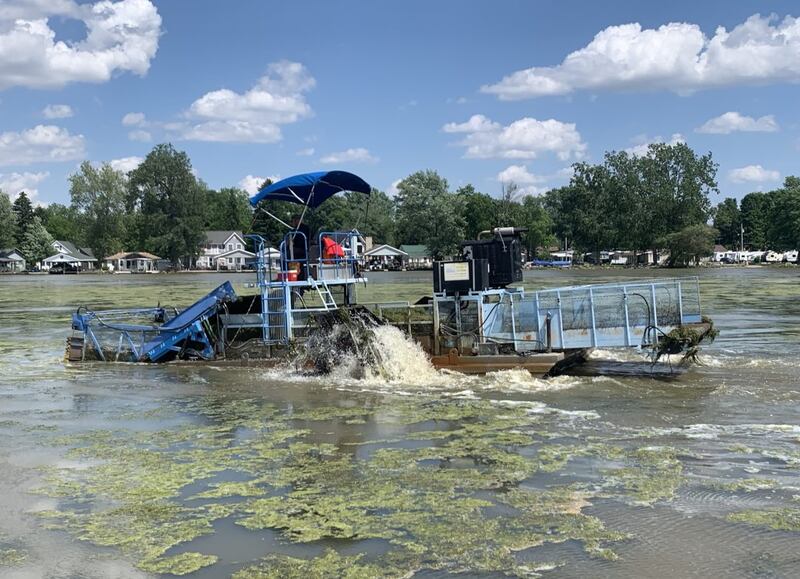LOGAN COUNTY — The Ohio Department of Natural Resources says there is a growing problem of two invasive weeds that have taken over parts of Indian Lake.
>> Photos: ODNR, local groups working to clean up invasive weeds at Indian Lake
ODNR and local groups are now trying to keep the weeds at bay while they figure out a long-term solution.
One of those groups invited News Center 7′s Haley Kosik to go out on the water and see the work they’re doing.
>> Previous Coverage: Crews work to combat ‘unprecedented vegetation growth’ at Indian Lake
“I’ve been coming here for 66 years and nothing ever like this,” said John West with the group “Indian Lake Boaters Helping Boaters.”
The weeds are such a nuisance for West and others that he decided to establish the group to help keep the water safe and clean.
“No one anticipated the weed issue. We were so happy with the clean water and it is a healthy lake, I want to stress that,” West said.
It’s so healthy, that’s why the weeds are “growing like weeds.”
>> Police investigating new case of mailbox theft at Kettering post office
“I think the weeds have got an upper hand on us right now, but I think in the next 30-45 days, I think we’re going have some success that I’m excited about,” said Dustin Wickershan, the head of the “Indian Lake Watershed Project.”
Wickershan has spent the last 30 years improving the lake’s water quality.
“It’s just one thing after another,” Wickershan said.
ODNR says the two invasive species of aquatic weeds are the curly palm leaf and milfoil that thrive in shallow waters with great sunlight.
“They spread through fragmentation, so anytime that it’s cut by a boat prop, it can reseed itself,” said Hiedie Whitman, Indian Lake State Park Manager.
As a temporary fix, ODNR has brought in machines called “lake rakers” which can be described as lawn mowers for water.
They cut the weeds, scoop them onto a conveyer belt and then haul the piles to the shore.
“It’s costly and just finding ways to be most efficient,” Whitman said.
She says weed harvesting is just a band aid solution for now, but ODNR has hired researchers to do a one-year study to find long term solutions.
“The goal is simple. We want folks to be able to come to the lake, get on their boat and navigate the waters,” Wickershan said.
They’re just going to have be cautious while doing so.
“That’s why it’s very important for vessels when they’re going from lake to lake, that they clean and dry their boat before putting into another body of water,” Whitman said.
She says that most likely that’s how the invasive weeds ended up at Indian Lake.
“It’s very important to us because it does effect boating. Probably about 50% of our calls today has been because of the weeds,” West said.
The study is expected to be finished by this November, which park officials are relying on to kill the weeds.
©2022 Cox Media Group






